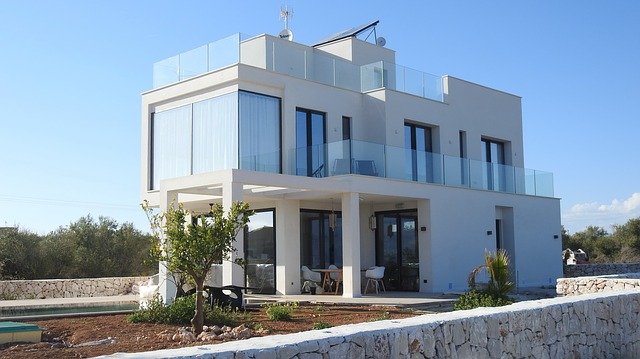About Us
Where its purpose is to help people
find the home of their dreams.

In 2013 Mauricio Rivera (Founder of Danex Homes), entered the Real Estate field with small sales of Mobile Homes, in which he was in charge of buying, remodeling, and selling them for a fairly accessible price in the market and that at, in turn, he will return profits. This business lasted about 7 years, after this Mauricio decides to launch into much larger properties, with this he enrolls for the beginning of 2020 as a Real Estate student in Alpha Homes Coaching, a company dedicated to preparing people to be investors and generate the best income in the field of the real state.
By November 2020 Mauricio Rivera already has his company called Danex Homes LLC, located in the state of Maryland United States. Their slogan: «Every investment has a story»
Mission
Provide our clients with personalized and comprehensive real estate advice, with ethics, honesty, and transparency, aimed at a personalized service in each of the stages of our intervention in the sale, purchase, or rent, based on our experience and training in the sector.
Vision
To be the best alternative for those who want the help of a real estate professional, from a close and decisive relationship, offering innovative proposals.
That our clients feel fully accompanied and advised throughout the process of buying a property, to improve their quality of life.
Values
Transparency
We promote open and timely information flows, acting consistently in
each of the processes carried out.
Honesty
We act with professionalism, moral integrity, loyalty, and respect for people.
Responsiblity
We focus all our efforts on customer orientation, providing quality and competitiveness in the market.
Helpful
We promote ourselves as people always willing to help for the common good.
Constance & Dedication
We are persevering in each of the work processes to efficiently and effectively achieve the results set out in the development of each of the projects.
Frequently Asked Questions
Here are some answers to the questions we receive the most about our services.
If we missed anything, please do not hesitate to contact us. We’ll be happy to help
What the first step of the home buying process?
Getting pre-approved for a mortgage is the first step of the home buying process. Getting a pre-approval letter from a lender get the ball rolling in the right direction.
First, you need to know how much you can borrow. Knowing how much home you can afford narrows down online home searching to suitable properties, thus no time is wasted considering homes that are not within your budget. (Pre-approvals also help prevent disappointment caused by falling in love unaffordable homes.)
Second, the loan estimate from your lender will show how much money is required for the down payment and closing costs. You may need more time to save up money, liquidate other assets or seek mortgage gift funds from family. In any case, you will have a clear picture of what is financially required.
Finally, being pre-approved for a mortgage demonstrates that you are a serious buyer to both your real estate agent and the person selling their home.
Most real estate agents will require a pre-approval before showing homes – this is especially true at the higher end of the real estate market; sellers of luxury homes will only allow pre-screened (and verified) buyers to view their homes. This is meant to keep out «Looky Lous» and protect the seller’s privacy. What’s more, by limiting who enters their home, sellers are given extra security from potential thieves trying to case the home (like identifying security systems, locating expensive artwork or other high-value personal property).
How long does it take to buy a home?
From start (searching online) to finish (closing escrow), buying a home takes about 10 to 12 weeks. Once a home is selected an the offer is accepted, the average time to complete the escrow period on a home is 30 to 45 days (under normal market conditions). Though, well-prepared home buyers who pay cash have been known to purchase properties faster than that.
What is earnest money?
When you make an offer on a home, your agent will ask for a check to accompany it (checks are the same as cash, and the deposit is typically 1% to 2% of the purchase price). Earnest money is made in good faith to demonstrate – to the seller – that the buyer’s offer is genuine. Earnest money essentially takes the home off the market to anyone else and reserves it for you.
The check (or sometimes cash) is deposited in a trust or escrow account for safekeeping. If a deal is struck, the earnest money is applied to the down payment and closing costs. If the deal falls through, the money is returned to the buyer.
Do I need to do a final walk-through?
It’s not required, but it’s a darn good idea! Final walk-throughs give buyers a chance to make sure nothing had changed since their first visit. If repairs were requested, as part of the offer, a follow-up visit ensures that everything is squared-away, as expected, per the terms of the contract.
How much do I have to pay an agent to help me buy a house?
Home shoppers pay little or no fees to an agent to buy a home.
For most home sales, there are two real estate agents involved in the deal: one that represents the seller and another who represents the buyer.
Listing brokers represent sellers and charge a fee to represent them and market the property. Marketing may include advertising expenses such as radio spots, print ads, television and internet ads. The property will also be placed in the local multiple listing service (MLS), where other agents in the area (and nationally) will be able to search and find the home for sale.
Agents who represent buyers (a.k.a. buyer’s agent) are compensated by the listing broker for bringing home buyers to the table. When the home is sold, the listing broker splits the listing fee with the buyer’s agent. Thus, buyers don’t pay their agents.
What kind of credit score do I need to buy a home?
Most loan programs require a FICO score of 620 or better. Borrowers with higher credit scores represent less risk to the lender, often resulting in a lower the down payment requirement and better interest rate. Conversely, home shoppers with lower credit scores may need to bring more money to the table (or accept a higher interest rate) to offset the lender’s risk.
How much do I need for a down payment?
The national average for down payments is 11%. But that figure includes first time and repeat buyers. Let’s take a closer look.
While the broad down payment average is 11%, first time homebuyers usually only put down 3 to 5% on a home. That’s because several first-time home buyer programs don’t require big down payments. A longtime favorite, the FHA loan, requires 3.5% down. What’s more, some programs allow down payment contributions from family members in the form of a gift.
Should I sell my current home before buying a new one?
If the built-up equity in your current home will be applied to the down payment on the new home, naturally the former will need to be sold first.
Some home buyers decide to turn their current home into an investment property, renting it out. In that case, the current home will not need to be sold. However, your loan advisor will still need to evaluate your risk profile and credit history to determine whether making a loan on a new home is feasible while retaining title to the old home.
Buyers often have a short time frame to sell their current home when relocating to a new city because of a job transfer. If you are moving but taking a position with the same employer, check to see if they offer relocation assistance to help offset some of the costs.
How many homes should I view before buying one?
That’s up to you! For sure, home shopping today is easier today than ever before. The ability to search for homes online and see pictures, even before setting a foot outside the comfort of your living room, has completely changed the home buying game. Convenience is at an all-time high. But, nothing beats visiting a home to see how it looks and ‘feels’ in person.
